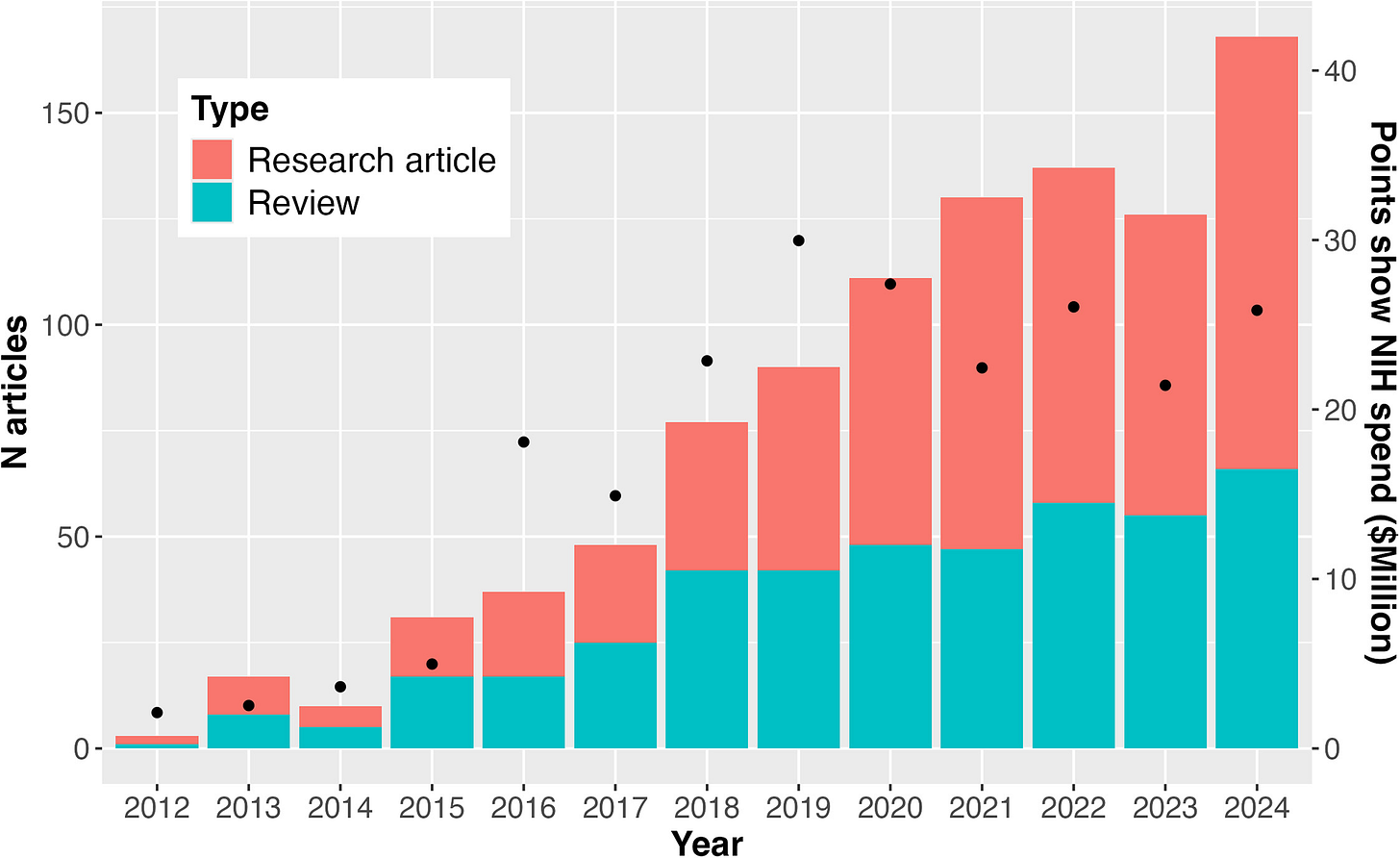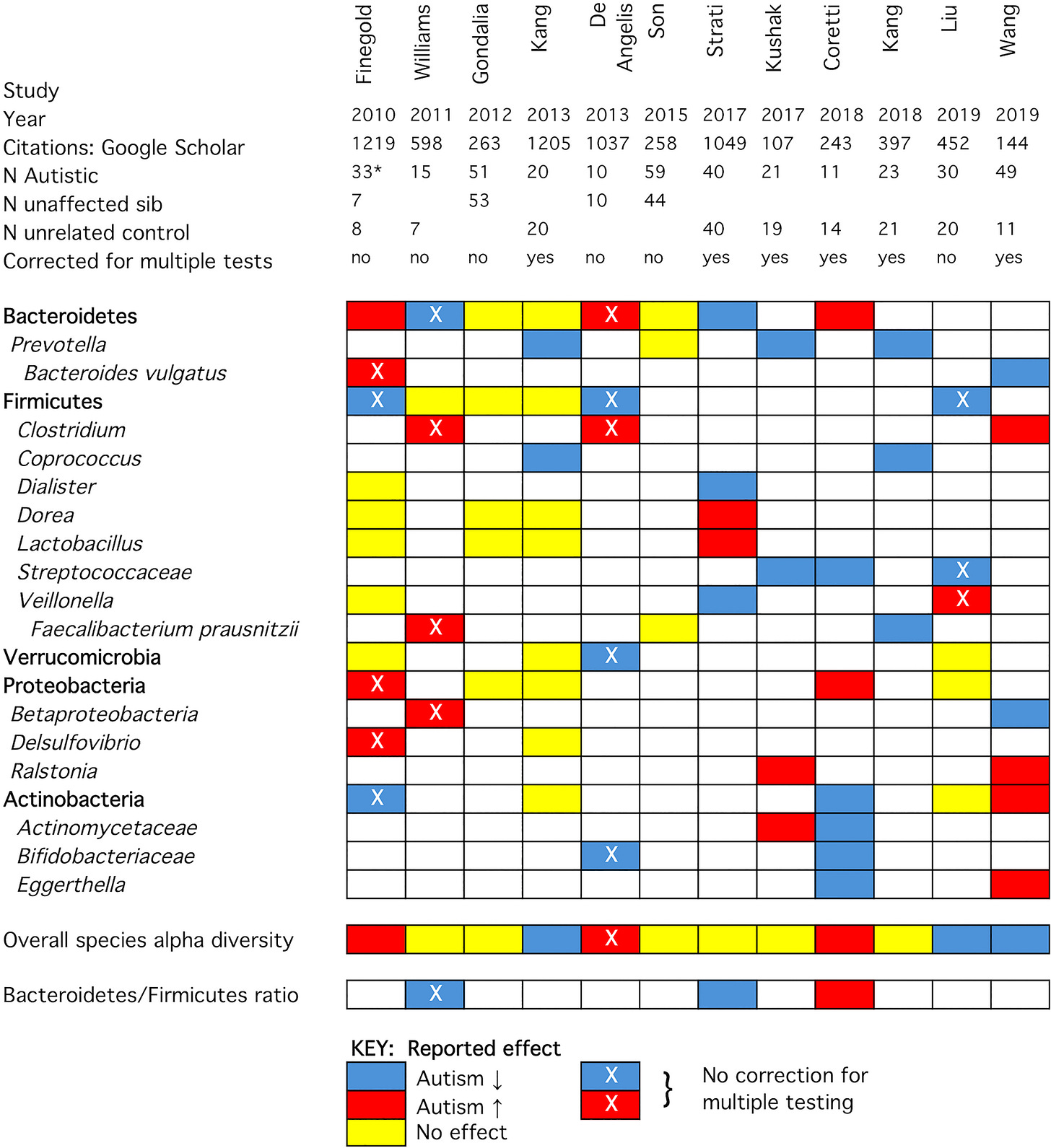The Autism-Microbiome Hypothesis Is Falling Apart
Why this new review paper should be required reading for every microbiome researcher
I believe this is one of the most important papers in microbiome science.
This new review in Neuron (Mitchell et al, 2025) systematically dismantles the gut microbiome-autism hypothesis through a critical assessment of published papers.
I was honestly shocked by the numbers: Despite 100+ papers per year and $20-25M in annual NIH funding since 2018, the most cited studies have tiny sample sizes (n=20 for some), uncorrected multiple testing, and contradictory findings. Some report higher microbial diversity in autism, others lower, many find no difference. The taxa they report are inconsistent. When properly analyzed with sibling controls and adequate statistical power, associations largely disappear.
The mouse model data is equally troubling. For example, a 2019 Cell paper claimed fecal transplants from autistic donors induced “autism-like behaviors” in mice. But when reanalyzed with proper statistics, the effects vanished. And it is really not clear how mouse behavior can model human autism.
And these are not obscure papers - they are published in the most high profile journals and have thousands of citations each.
Maybe it is not surprising that randomized controlled trials of probiotics show no consistent benefit for autism.
As a result, we’re watching well-intentioned science fuel a billion dollar “wellness” industry selling unproven interventions to vulnerable families.
As a microbiome scientist, this really troubles me. Excellent research IS being done, and the microbiome holds real promise as a diagnostic and therapeutic tool. But these overhyped, methodologically weak studies cast a shadow over our entire field.
The solution, in my opinion – and completely I agree with the authors on this – is to adopt the rigor that transformed human genomics: pre-specified hypotheses, adequate power, standardized protocols and pipelines, large sample sizes, statistical robustness, replication, and above all: resisting the hype machine.
Read the full paper: Conceptual and methodological flaws undermine claims of a link between the gut microbiome and autism, Neuron 2025



